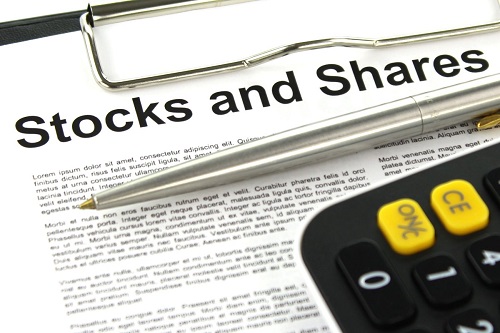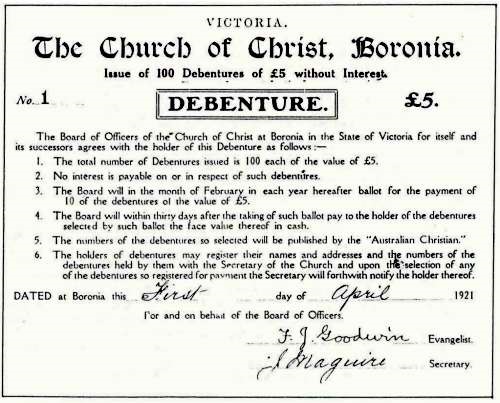Difference between Shares and Debentures
What are shares?
Shares correspond to a part of a company that is sold on the stock markets in order to obtain financing in exchange of retributions of profits among their owners. The return for the investor comes from stock price change, which depends on the performance of the firm, as well as the payment of dividends, which is agreed through the quarterly, semi-annual or annual meeting of shareholders, only in the event that benefits are generated.
The types of shares can be divided taking into account the aspects of right to participation in the decisions of the company, the value of its dividends and the risks assumed by the shareholder in case of bankruptcy:
- Common shares: These are the shares where they have the right to vote at the shareholders’ meeting, with a lower value in dividends.
- Preferred shares: These are the shares where a better dividend is granted in comparison to ordinary shares, in exchange for waiving the right to vote at the shareholders’ meeting.
- Preference shares: These are shares with voting rights and preferential dividends, with the additional advantage of recovering the investment in case of bankruptcy at the moment of liquidating liabilities by the company.
Each of these types of shares is issued by the firm according to its needs and with a different nominal price, which may change according to the demand for these securities in the stock markets.
What are debentures?
It constitutes a liability that the company grants an investor in the securities markets to obtain immediate financing for the development of its activities in exchange for a fixed payment.
The key features that compose a debenture are following:
- Principal: It is the total value of debenture bought by investor and returned at the moment of maturity expires.
- Coupon: It is the interest gained by result of interest rate defined on contract and the principal.
- Maturity: It is the expiration date of debenture.
The types of bonds that exist according to issuer are:
Public debt: It is debt issued by a sovereign government in order to finance the public budget. The price and interest rate paid depends on the interest rates of the central bank of that country, its credit quality and the fundamentals of its economy.
Private debt: This is debt issued by private sector companies in order to finance the development of new investment projects. The quality and the interest rate paid for the company’s debt depends on the credit risk of the country where the company operates and the company’s financial capacity to generate revenue and manage its liabilities.
An additional aspect of debentures, are the fact that firms can convert this asset of fixed income as variable income, using the figure subordinated debentures, where company exchange debt with shares of firm in case of liquidation or reorganization of firm.
Difference between shares and debentures
- Property rights
Shares
The shares imply property rights to its owner and depending the type of share, have right to vote in actionists board.
Debentures
The investment of debentures does not imply a property right, only an obligation for issuer to pay interest and whole lending in defined periods.
- Uncertainty of returns
Shares
The expected return of a share depends of performance of company in its industry, impacting over dividends and price of shares over time.
Debentures
The expected return of investment of a debenture is known and defined in the interest rate previous to be acquired by investor.
- Increase on interest rates
Shares
As result of an increase of interest rates, prices of shares may decrease as consequence of switching between debentures with a lower risk and better interest rate and shares with higher risk and return.
Debentures
The increase of interest rates, impacts in present value of a debenture, decreasing its value compared to new debentures issued with a higher interest rate.
- Profits
Shares
Shares generate profits to investor in price valuation and dividends paid by profits during a fiscal year.
Debentures
The return of debenture is generated by interest paid periodically during maturity of liability. In case of interest rates decrease, price can increase and sell before maturity with gain between price sold and bought.
- Tax deduction
Shares
Shares profit represented in selling the assets and dividends paid, which are subject as occasional gain for owner and it incurs in taxes payment.
Debentures
As result of debentures is a passive for the firm and impact in balanced sheet as an expense, it reduce the total amount of taxes paid after discount debt, being a deduction for profit.
Shares versus Debentures
| Provides to owner property rights over firm. | It is passive bought but not gives property rights to holder. | |
| Owner is not obligated to sell shares and may keep position. | The respective debenture has a maturity to return whole investment. | |
| Shares provide dividends to owner. | Debts provide interests to holder. | |
| Dividend is paid only with profits are generated. | Interests are paid by firm or government without depending profit. | |
| There is risk of bankruptcy and loss of whole value of shares. | There is risk of default of payment of interest and principal of debentures. |
Summary:
- Shares and debentures represent assets traded in securities market with distinctive characteristics that define their return and risk.
- Share is a part of company where it gets profit based on price performance and dividends paid to investor.
- Shares can be issued depending on disjunctive between offered dividends, rights to vote in actionist’s board or safety in give back whole investment to investor.
- Debentures are passives acquired for firm to pay its holder an interest to exchange to obtain immediate resources to invest them and pay them back in a future date.
- Debentures are issued by a sovereign government to finance public budget or by a private firm to finance new investment projects.
- The risk associated to lose investment in shares and debentures depend on evolution of cash flow of enterprises to pay dividends and interest to holders.
- Shares imply property rights to investor; meanwhile, debentures represent an asset where you finance a passive for a firm or sovereign state.
- When there is no uncertainty between assets such as shares and debentures, return must be the same.
- Difference between a Manager and Entrepreneur - October 30, 2017
- Difference between Shares and Debentures - October 10, 2017
- Difference between Avoidable Cost and Unavoidable Cost - September 29, 2017
Search DifferenceBetween.net :
1 Comment
Leave a Response
References :
[0]Johnson, R. (1955). Subordinated Debentures: Debt That Serves as Equity. The Journal of Finance,10(1), 1-16. doi:10.2307/2976060
[1]Lambert, E. (1966). Bank Debt Securities: The Investor's Viewpoint. Financial Analysts Journal,22(3), 93-99. Retrieved from http://www.jstor.org.ezproxy.unal.edu.co/stable/4469993
[2]Storm in a Tea Cup. (1986). Economic and Political Weekly,21(25/26), 1088-1089. Retrieved from http://www.jstor.org.ezproxy.unal.edu.co/stable/4375809
[3]Varian, H. (2011). Intermediate Microeconomics: A Modern Approach. Barcelona. Antoni Bosch editor, S.A, 2011. Print
[4]Image Credit: http://www.creative-commons-images.com/finance/stocks-and-shares.html
[5]Image Credit: https://commons.wikimedia.org/wiki/File:Debenture.JPG



Thanks you ma dear
I appreciate write